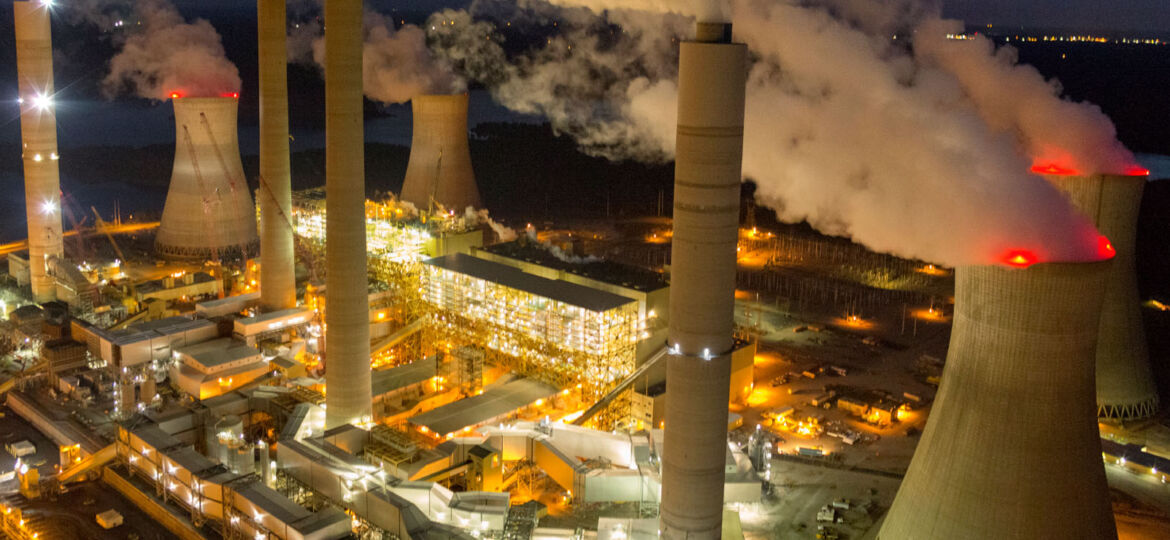
WHY THIS MATTERS IN BRIEF
CO2 is a major greenhouse gas but until now capturing it was difficult and expensive, this new technology could help reduce global emissions by 10%.
India have made a breakthrough in the race to make useful products out of planet heating CO2 emissions, and now a coal powered power plant at the industrial port of Tuticorin is capturing CO2 and using it to make baking soda. And crucially, the technology isn’t being subsidised, which is a major advance for carbon capture technology as for decades it’s been shown that it’s expensive to do, and as a consequence it’s only ever received lukewarm government support.
The firm behind the new Tuticorin process says its chemicals will lock up 60,000 tonnes of CO2 a year and – as you can imagine – the hot new technology is attracting interest from around the world.
Until now the debate over carbon capture has mostly centered on Carbon Capture and Storage (CCS) technologies, where emissions are forced into underground rocks at great cost and no economic benefit. The Tuticorin plant is said to be the first unsubsidised industrial scale example of Carbon Capture and Utilisation (CCU).
There is already a global market for CO2 as a chemical raw material, mainly from industries such as brewing where it is cheap and easy to capture but until now it has been too expensive without subsidy to strip out CO2 from the relatively low concentrations in which it appears in flue gas and the Indian plant has overcome the problem by using a new CO2-stripping chemical.
It is just slightly more efficient than the current CCS chemical amine, but its inventors, Carbonclean, say it also needs less energy, is less corrosive, and requires much smaller equipment meaning the build cost is much lower than for conventional carbon capture.
The new kit has already been installed at Tuticorin Alkali Chemicals and now the firm is using the CO2 from its own boiler to make baking soda – a base chemical with a wide range of uses including glass manufacture, sweeteners, detergents and paper products.
“I am a businessman. I never thought about saving the planet. I needed a reliable stream of CO2, and this was the best way of getting it,” said the firm’s managing director, Ramachandran Gopalan, who then went on to say that the plant now has virtually zero emissions to air or water.
Carbonclean believes capturing usable CO2 can deal with perhaps 5% to 10% of the world’s emissions from coal, it’s no panacea, but it would be a valuable contribution because industrial steam-making boilers are hard to run on renewable energy.
The inventors of the new process are two young chemists at the Indian Institute of Technology in Kharagpur. They failed to find Indian finance and were welcomed instead by the UK government, which offered grants and the special entrepreneur status that whisks them through the British border and the firm’s headquarters are now in London’s Paddington district.
“So far the ideas for carbon capture have mostly looked at big projects, and the risk is so high they are very expensive to finance. We want to set up small-scale plants that de-risk the technology by making it a completely normal commercial option,” said Aniruddha Sharma,the company’s CEO.
By producing a subsidy-free carbon utilisation project, Carbonclean appears to have something of a global lead but it is by no means alone. Carbon8 near Bristol is buying in CO2 to make aggregates, and other researchers are also working on making plastics and fuels from waste CO2.
At last, however, it seems, the race to turn CO2 into profit is really on and when money’s involved – let’s face it – people get more interested, but personally I think it’s great to have another solution in our arsenal in the battle against climate change.

















[…] Source link […]